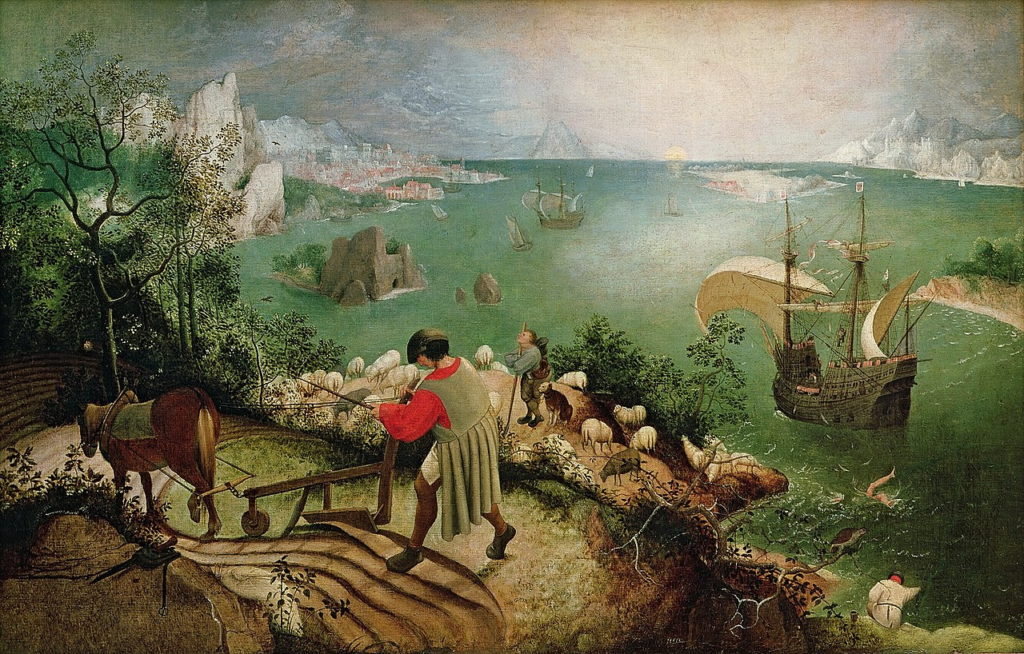
Pieter Brugel the Elder: “The Fall of Icarus” (1560), Musee des Beaux Arts, Brussels
This celebrated painting from the 16th century has inspired many other works of art, including Auden’s almost equally well-known poem from 1938. Auden’s poem has been a favorite of mine since I first encountered it in 1978, and I reread it often. As it is still protected by copyright, I will quote only the familiar first lines:
About suffering they were never wrong, the old Masters: how well they understood its human position,....
If you would like a little context about this poem’s composition, you can read about it here.
This poem (and the painting and myth from which it derives) invite the contemplation of failure, specifically of the “pride goeth before a fall” variety. It is manifestly true that the most successful and productive people fail the most often–simple law of averages, the more one does, the more ‘oopses’ there are along the way–but these stalwart ones pick up and move on more readily, on most days, than I do, but I can say that I don’t always give up. (And I do derive a great deal of encouragement from art in general and ekphrastic poetry, in particular. In fact, I learned just now, in preparing background for this post, that David Bowie’s film from 1976, “The Man Who Fell to Earth,” was inspired by the poem and the painting, both of which appear in the film. I am now going to seek out the film!)
(Note: I regret that my vestigial WordPress skills do not allow me to insert the French accent aigu where it should be, on the first ‘e’ of “musee.’ Mea culpa!)

Context for My Poem, “The Big Oof”:
Among the many joys of daily life for me is stumbling upon a new word or new expression. Today, while chipping away at the Sunday New York Times crossword puzzle, I came across a term new to me, one I recognized immediately as one that describes a certain kind of public discomfort with which I am woefully familiar. The eponymous title for six lines of (somewhat sonorous) blank verse were fun for me to write, rather especially as that compositional time came in the wake this morning of a big thud of a rejection that I could have done without encountering today. That icky Icarus feeling, fortunately not fatal.
Ah, well! So it goes for me, and Icarus, and maybe sometimes for you, too? It must be the way we learn, darn it.
If you are one of those readers who elected to receive the daily poem via email, I would be interested to hear whether you have heard this new lingo, “The Big Oof,” before and if you think the slight poem I made captures its essence–or maybe misses the mark? If the latter, do tell me. I might wince a tad, but I want to know!
Wishing you a wince-free day,
LESLIE

Thank you, Jan!
Is that what all those literal and figurative pratfalls are called? No, I’m not familiar with that expression, and I’m not sure Oof is the word I’d have chosen. But your poem conveys the message! 🙂
I am not familiar with “The Big Oof” as commonly expected words of expression. It is accurate though for that feeling I think you’re trying to relay in your poem. For me, it IS harsher than I care to think of the cosmos being. However, it is smile-inducing and humbling which, for me, all the oofs, big or otherwise, are for me!